Individual Digital Portfolio
Summer 2022
EDCI 339 A02
Submitted by: Kenzie Squirell
July 25, 2022
Part 1: Evidence and Reflection on Your Learning, Option A: Structured by Outcome
Topic One Discussion Post on Blog: https://msquirell.opened.ca/2022/07/11/topic-1-discussion/
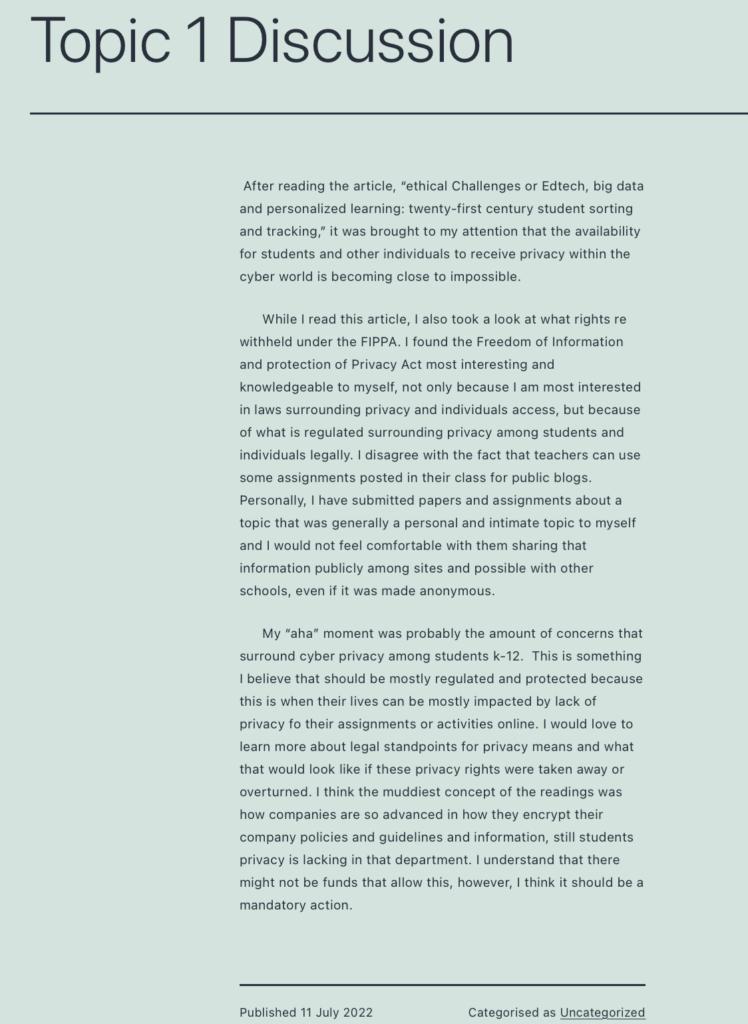
In this discussion, I was able to point out the difficulty in finding privacy for students online. In addition, I came to realize that the need to complex passwords is becoming a mandatory action in order to keep your cyber world safe and unobstructed. The learning outcome I received from this week’s reading was that the many different aspects of privacy that is related to learning online and using technological tools to support their learning, whether it be in person or online. I was also able to describe the potential for both open learning and distributed learning in human- centered educational learning.
Topic Two Discussion Post on Blog: https://msquirell.opened.ca/2022/07/13/topic-2-discussion/
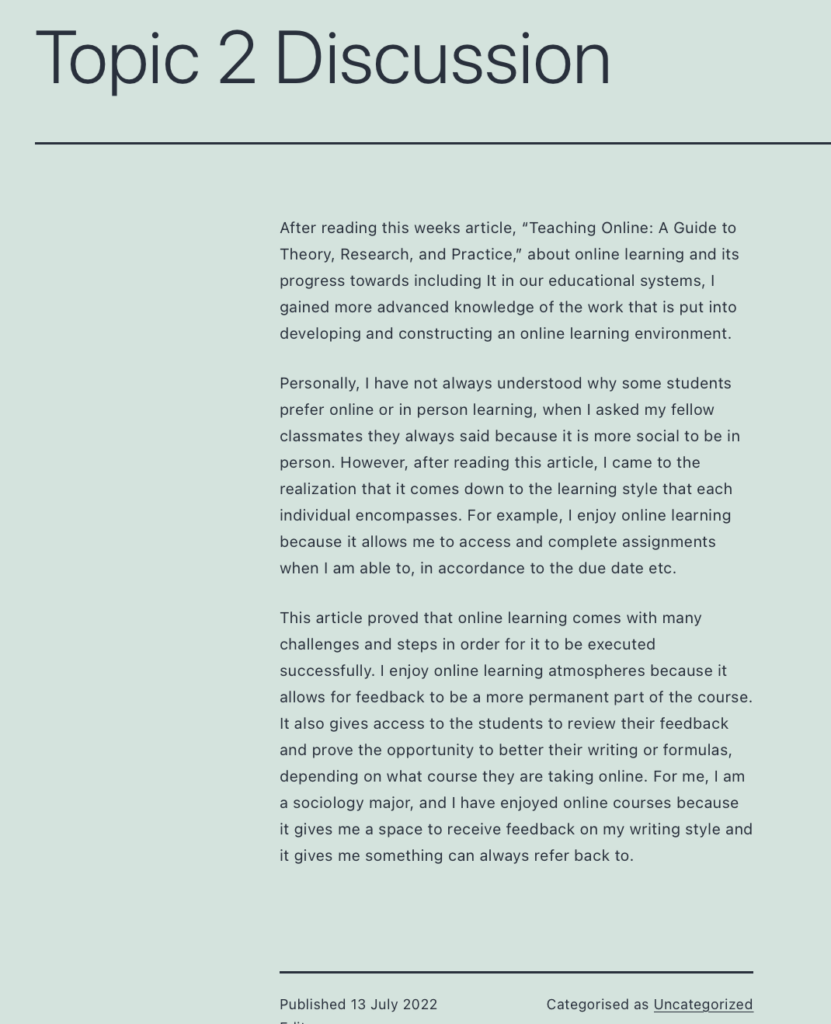
As per my second topic discussion, I reviewed the article about “Teaching Online: A Guide to Theory, Research, and Practice,” which covered the progression and growing inclusion of online learning within our school systems. This text reviewed the learning outcome of online education surrounding different potential actions for access in the context of online and open learning.
Topic Three Discussion Post on Blog: https://msquirell.opened.ca/2022/07/19/topic-3-discussion/
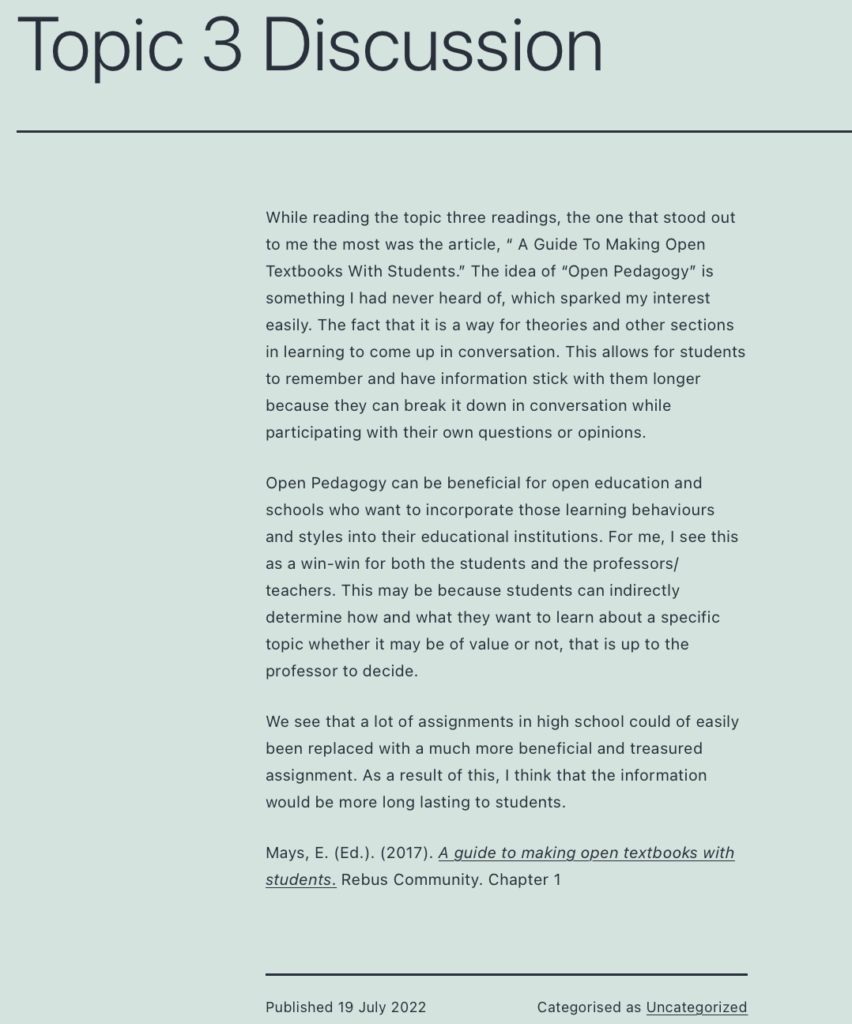
While completing my topic three response post, I learned a new term called “Open Pedagogy,” which means that there is a use of OER, which is open educational resources that reinforce the learning of the student and the teacher in relation to their teaching material and course. I believe that open pedagogy and OER can aid in conducting research and allow students to critically reflect upon emerging future educational technologies.
Topic Four Discussion Post on Blog: https://msquirell.opened.ca/2022/07/23/topic-4-discussion/
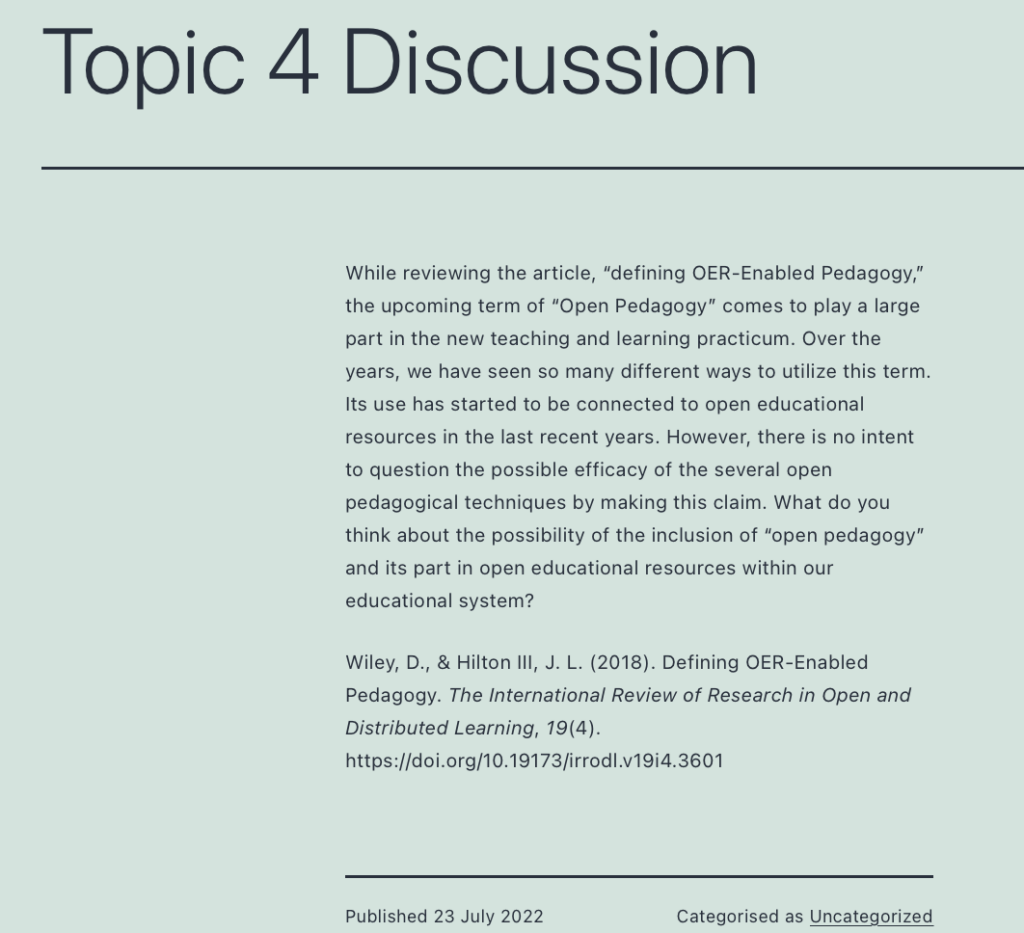
In my topic four discussion, I reviewed the article titled, “Defining OER-Enabled Pedagogy.” This text discussed the introduction and inclusion of open pedagogy in educational institutions, along with its ability to be used in human-centered, in person learning and online learning. In addition, I think that it is quite possible that these new and upcoming learning techniques will be highly beneficial towards majority, if not, all, of the students involved in the education world. The learning outcome I acquired from this topic was that through being able to define and educate students and institutions on this term, we may be able to customize ways in which open pedagogy can be included within our educational systems through
From completing these activities, I have learned that there are several other sectors that play a vital part in online and human-centered learning. All while participating within these posts and conversing with my classmates via Mattermost and WordPress, I was able to both give and receive feedback which broadened and advanced my knowledge and perception of open pedagogy, digital access, modality, privacy learning, and cyber security in regards to open and private educational portals. In addition to receiving comments and diving into the topic readings, I learned that these are all in need of advancement and further investigation. Although, in order to receive the necessary data, the implementation of open pedagogy in both distributed and open learning is needed.
In addition, I learned the different types of learning and others opinions and experiences through our learning pods and their comments on my discussion posts.
Here are a few examples of their responses to my topic posts on WordPress:
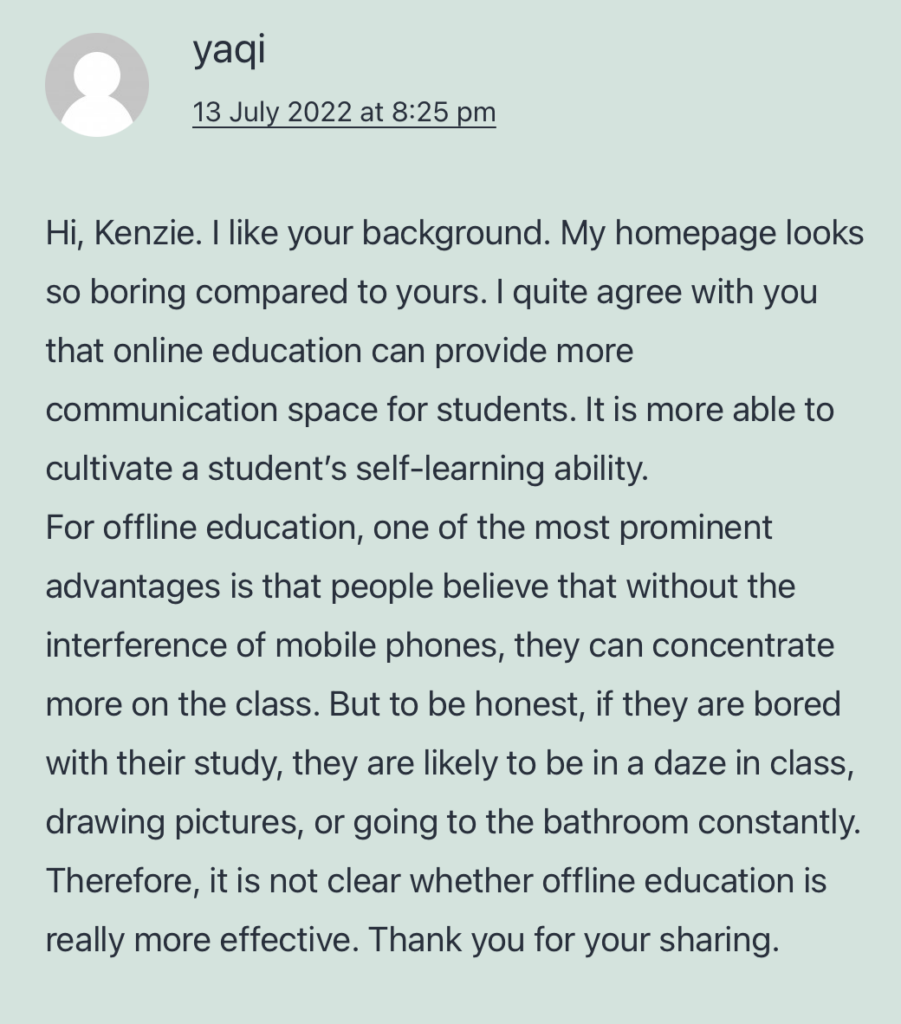
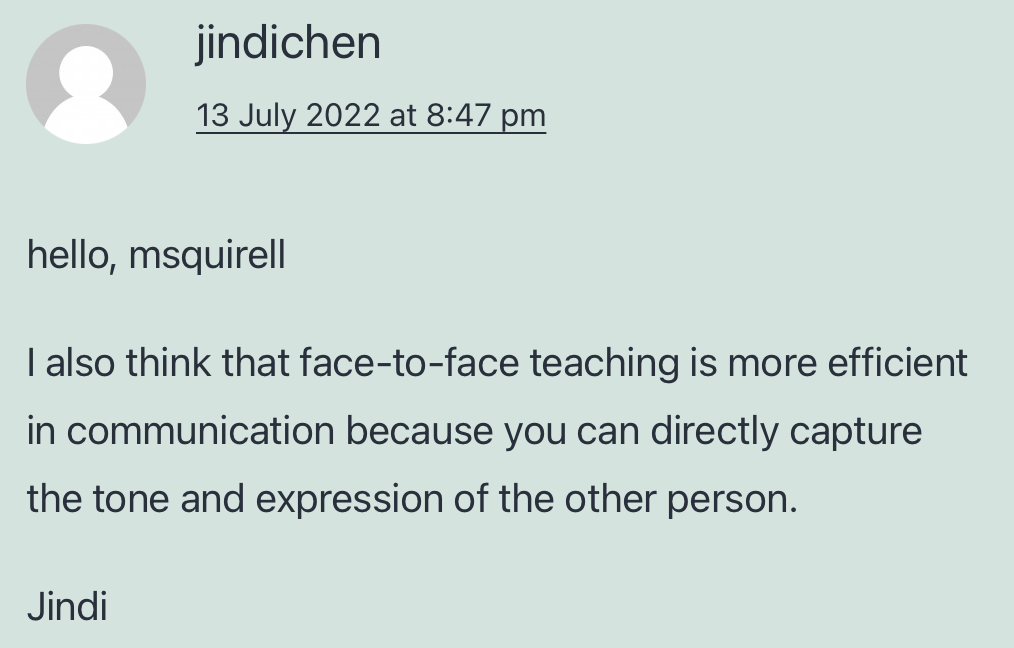
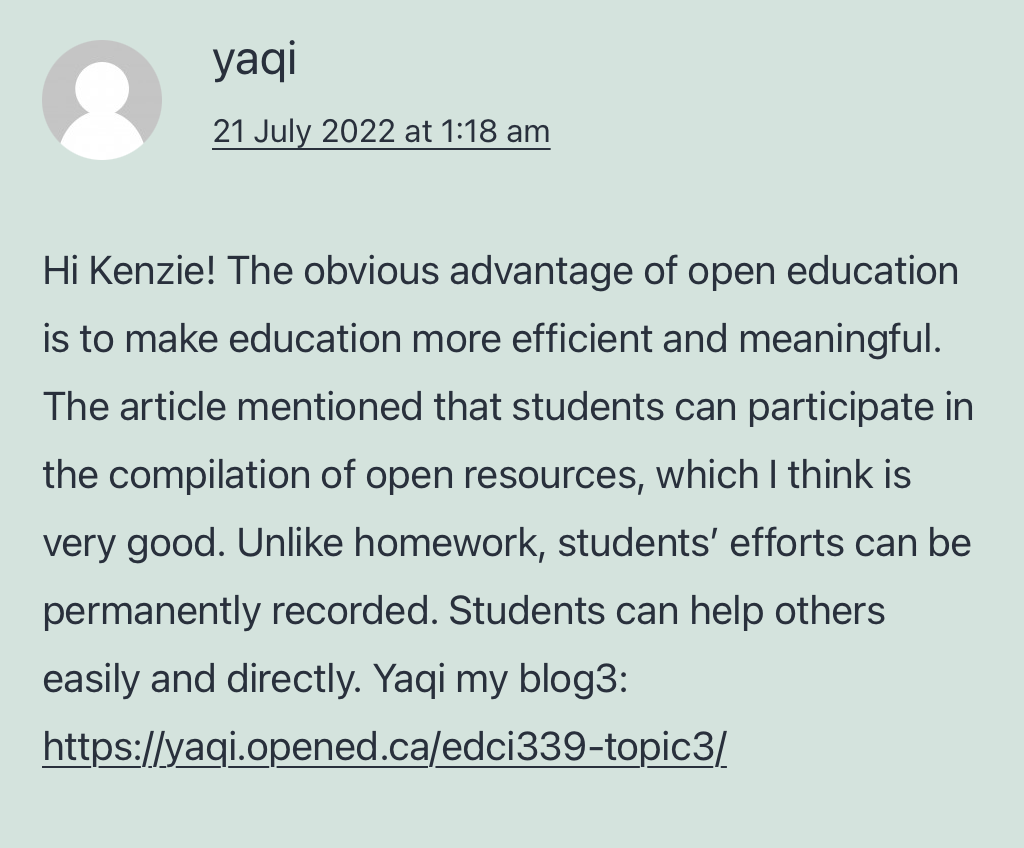
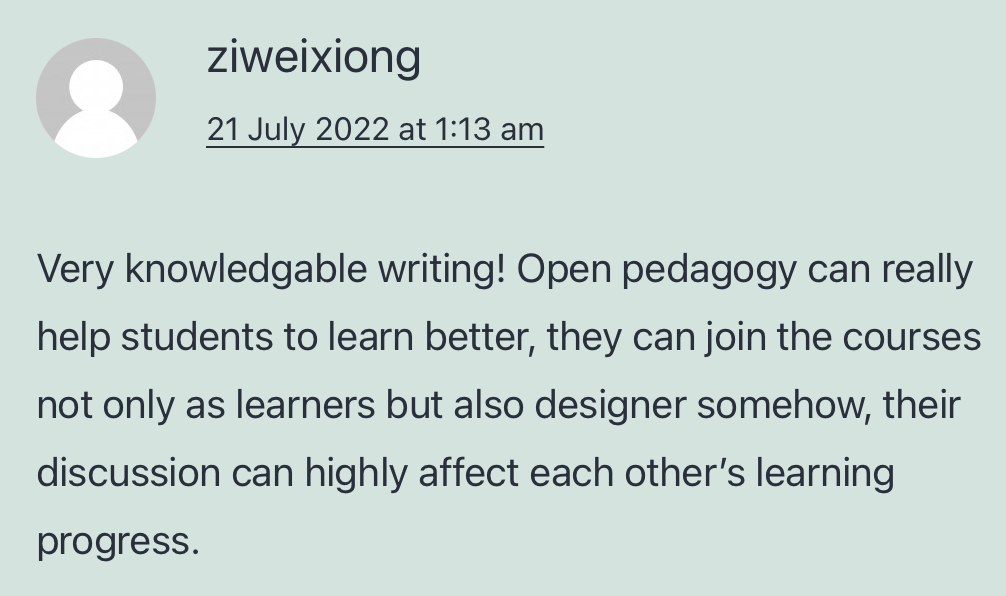
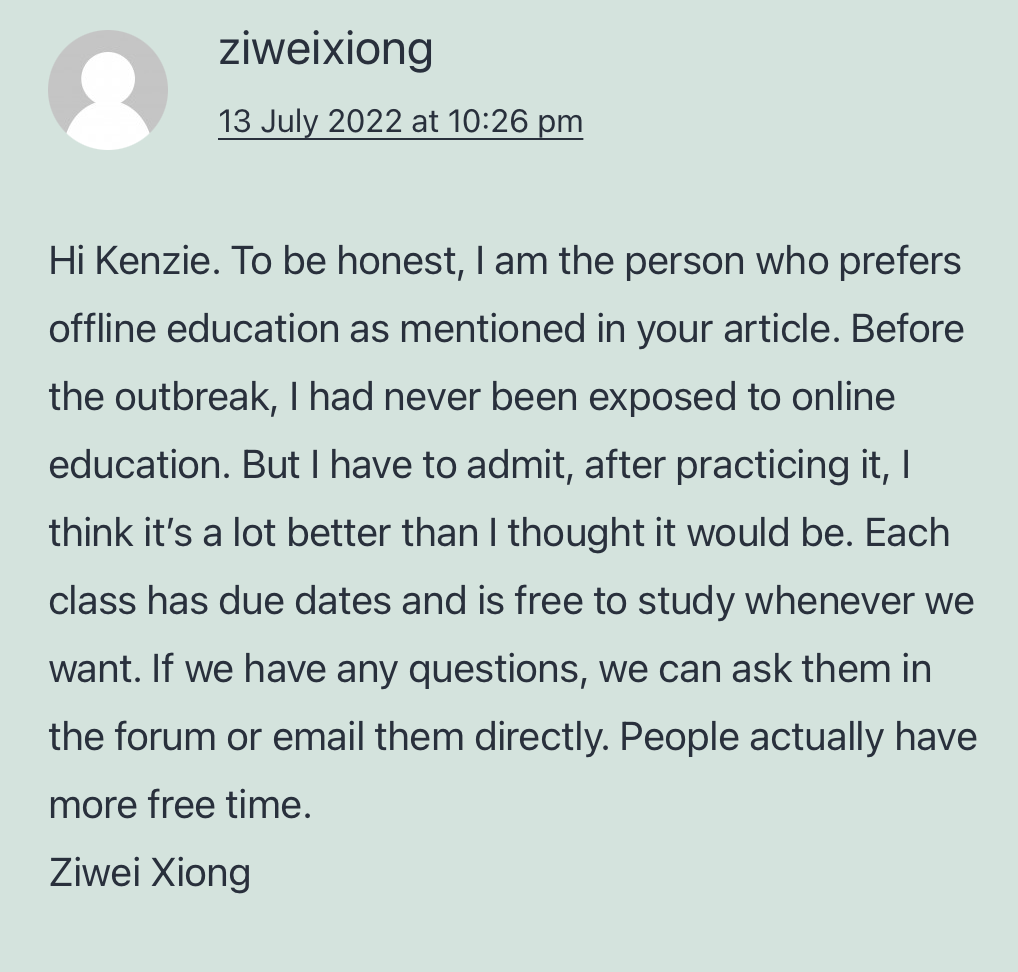
Here are some examples of my contributions to my learning pods posts on WordPress:
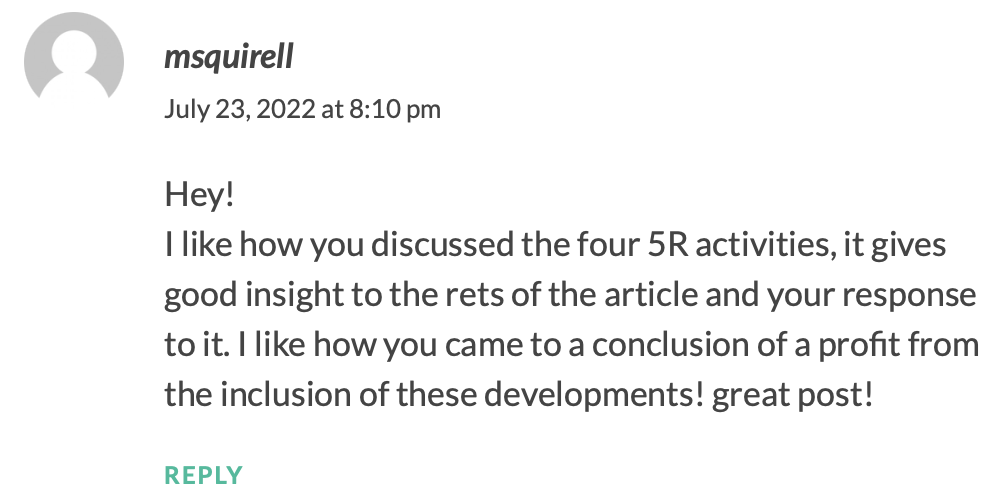
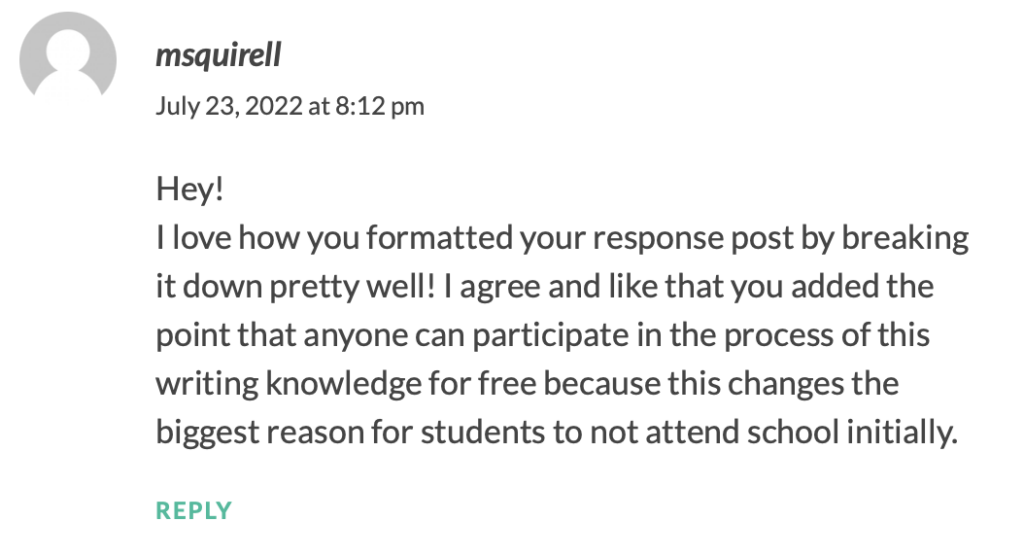
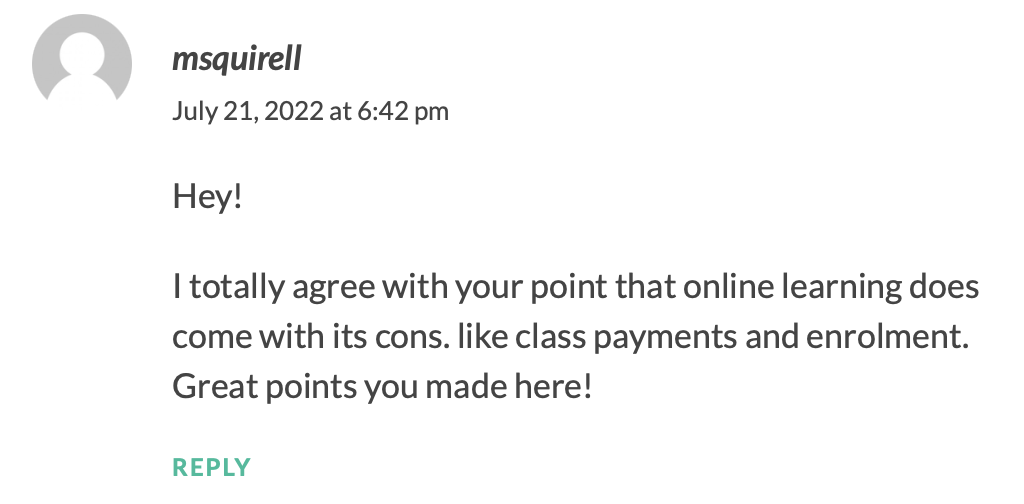
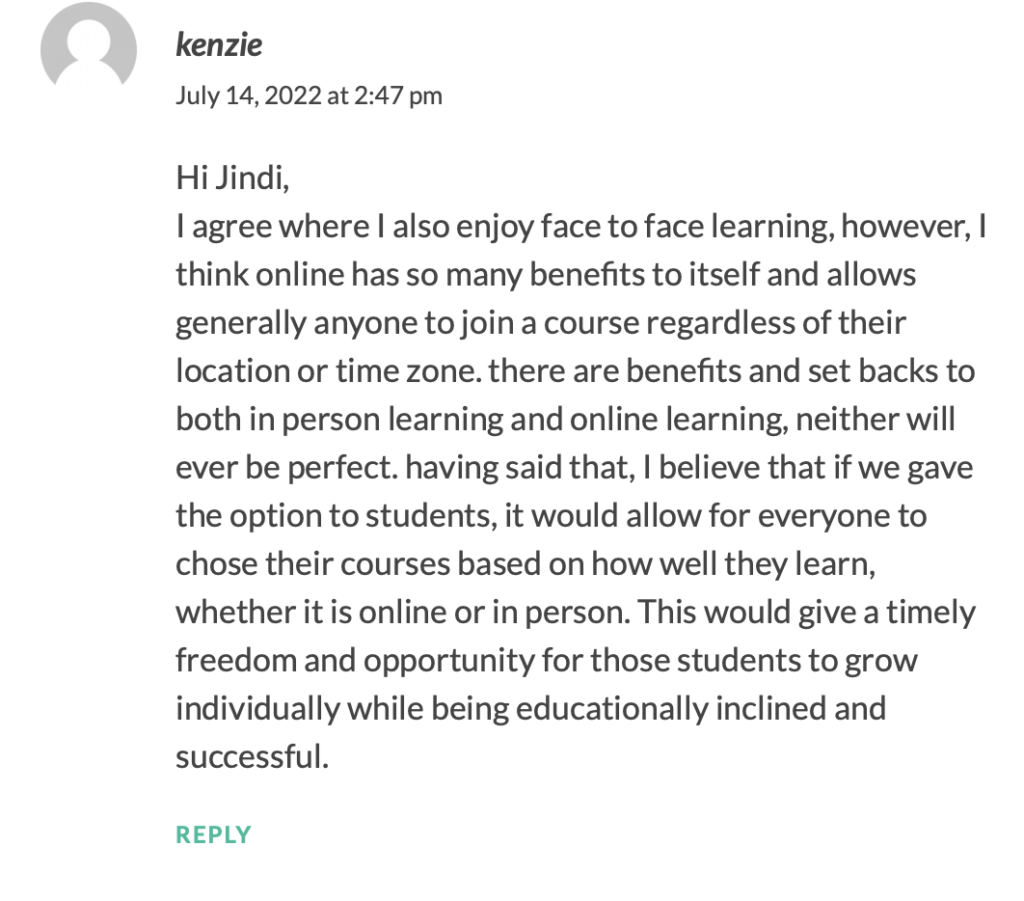
Through this course, I have learned and acquired many skills and techniques that play a big part into open and distributed learning. As my major is Sociology and my hope is to become a lawyer, I have noticed that the way we observe society in sociology can be related or compared to the data that is secured when observing open pedagogy or privacy laws/access. For example, the data that comes from implementing certain guidelines into online or open/distributed learning is an observation of how effective it is among students and their faculty. This relates to my major because we too observe the students as a society in other ways.
Part 2: “Showcase” Blog Post
Link to original blog post: https://msquirell.opened.ca/2022/07/13/topic-2-discussion/
New showcase blog post altered from the feedback of my classmates in my learning pod: https://msquirell.opened.ca/2022/07/25/showcase-blog/
“After reading and analyzing this week’s article, “Teaching Online: A Guide to Theory, Research, and Practice,” about online learning and its progress towards including it in our educational systems, I gained more advanced knowledge of the work that is put into developing and constructing an online learning environment.
Personally, I have not always understood why some students prefer online or in person learning, when I asked my fellow classmates, they always said because it is more social to be in person. However, after reading this article, I came to the realization that it comes down to the learning style that each individual encompasses. For example, I enjoy online learning because it allows me to access and complete assignments when I am able to, in accordance to the due date etc.
After hearing others opinions and perspectives upon teaching online, I couldn’t help but to think that everyone’s experience will always be different with online teaching/learning, whether it be open or distributed learning. I have received majority of positive feedback for online learning as it comes with many benefits which may include a denser communication center, an opportunity for self-learning to grow, and the ability for other interests to thrive within an individual. In addition, a student may also feel unmotivated to work on their educational classes at a certain time of day, which in this case, they are able to return to their work and course material when they feel most motivated during the day. However, there were also several valid advantages to in-person education, which for example may be a lesser chance for distraction (phones, TikTok, Instagram, YouTube etc.,). This is when you must consider how students will retain information best and if they should be given the option of open/distributed, online or in person learning.
This article provided that online learning comes with many challenges and steps in order for it to be executed successfully. I enjoy online learning atmospheres because it allows for feedback to be a more permanent part of the course. It also gives access to the students to review their feedback and prove the opportunity to better their writing or formulas, depending on what course they are taking online. For me, I am a sociology major, and have enjoyed online courses because it gives me a space to receive feedback on my writing style and it gives me something I can always refer back to.
To conclude, I have found that online education works best for me and my learning style, as there may be some time in the day that I feel least motivated, therefore, with online education, I can choose a time in the day to mentally prepare and “zone in” for a time of learning. To reflect, I solely believe that it is up to the individual student and their learning style, major, or personality that determine whether they are fit best for distributed, online education or open, in- person education.”
Reasoning
I chose to alter my reading post after hearing the mixed opinions and comments of my classmates. This allowed me to clarify and conclude that it truly does depend on the student and their preference in regards to online learning or in person learning. Therefore, I stand by my statement that both learning styles and options should be made available to students and faculty members because this will allow them to decide and reach the best kind of education they can for themselves. The changes made were made once I had discussed open and distributed learning, both online and in-person, with my classmates. After hearing their opinions, I was inspired to add in some insight pertaining to the uniqueness that comes with learning styles. Through this course, I have achieved a deeper knowledge on human-centered learning in both open and distributed education styles, which will benefit myself when choosing courses and educational material in the future.
References
Major, C. H. (2015). Teaching Online – A Guide to Theory, Research, and Practice. Retrieved from http://ebookcentral.proquest.com/lib/uvic/detail.action?docID=3318874(pp. 76-108)